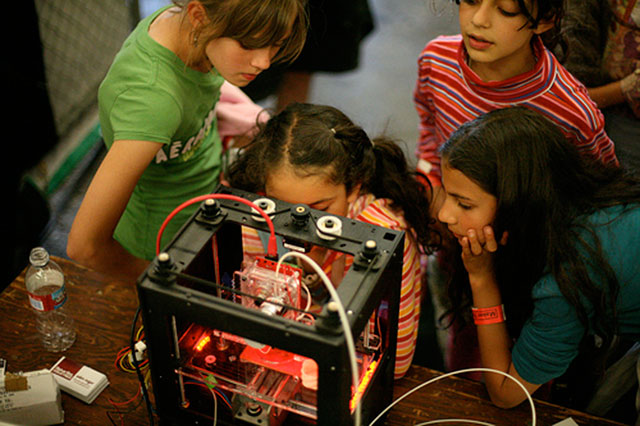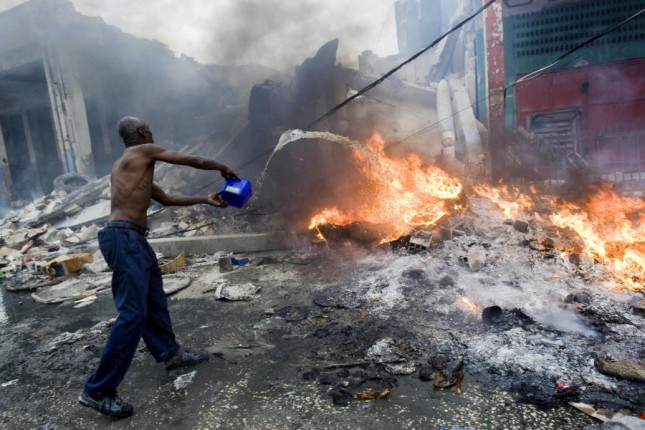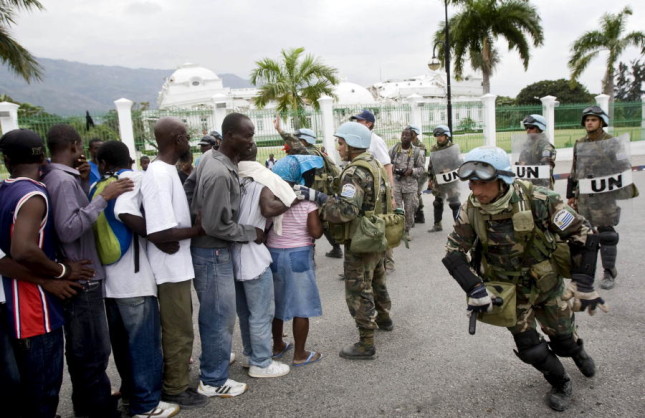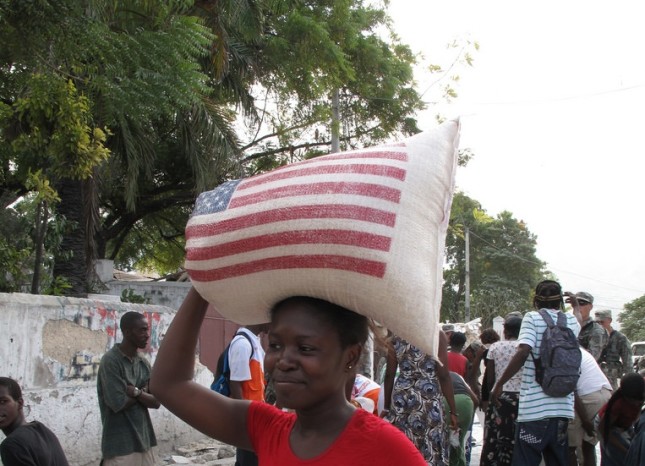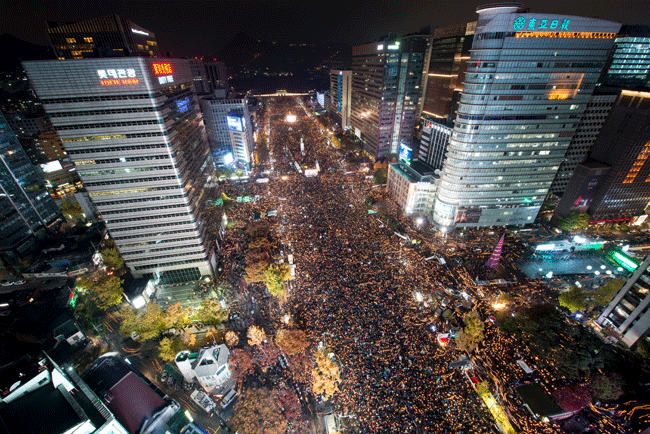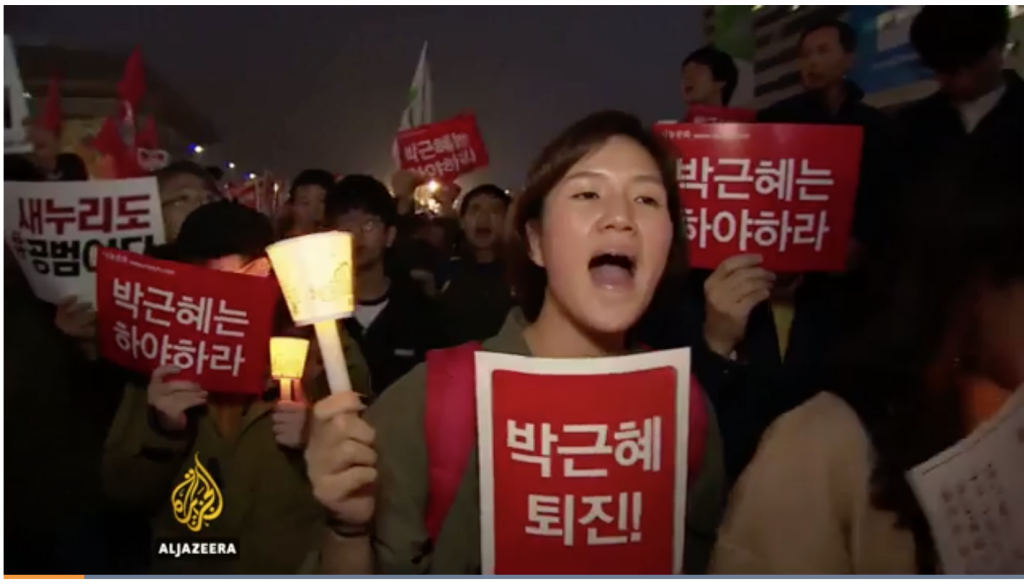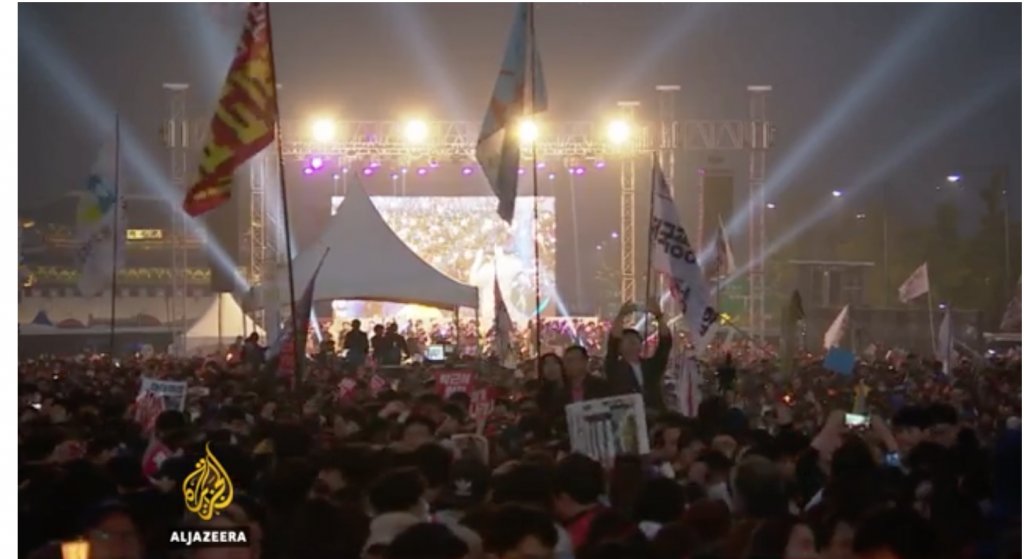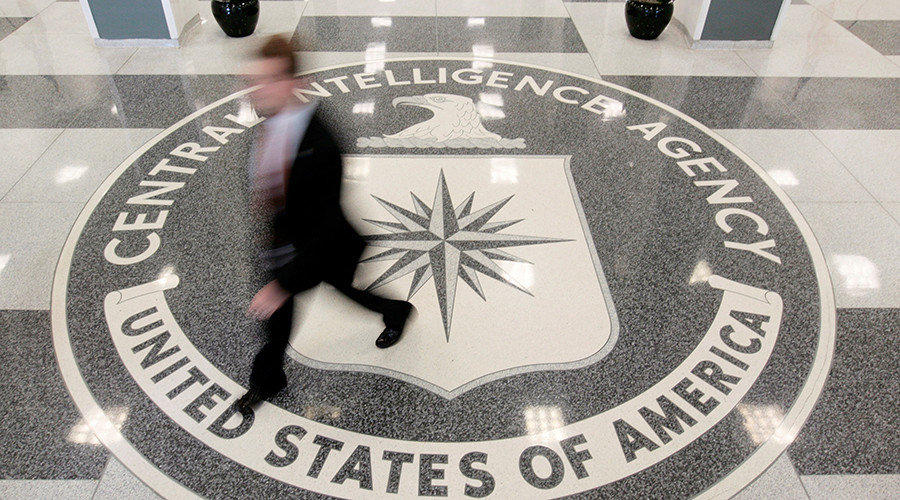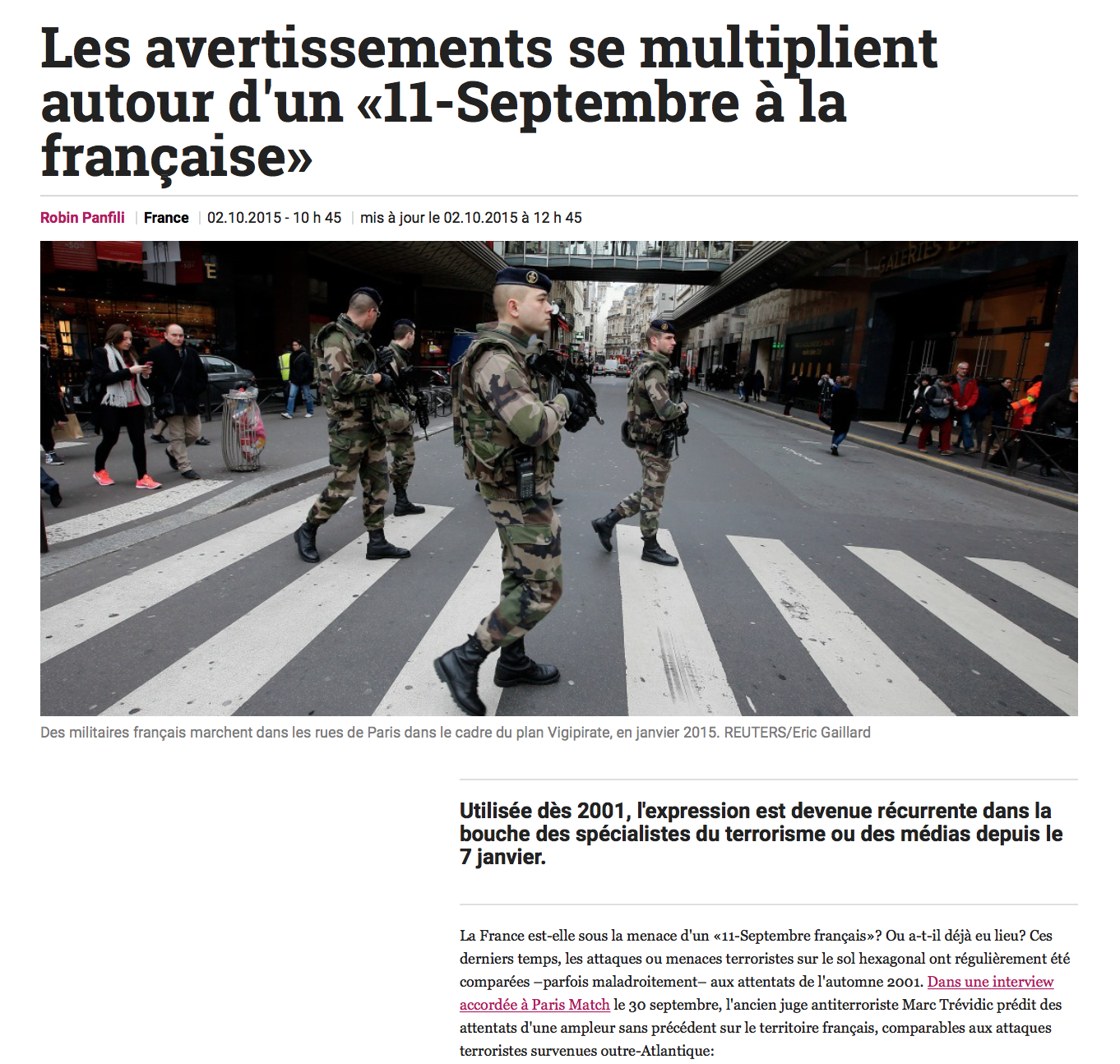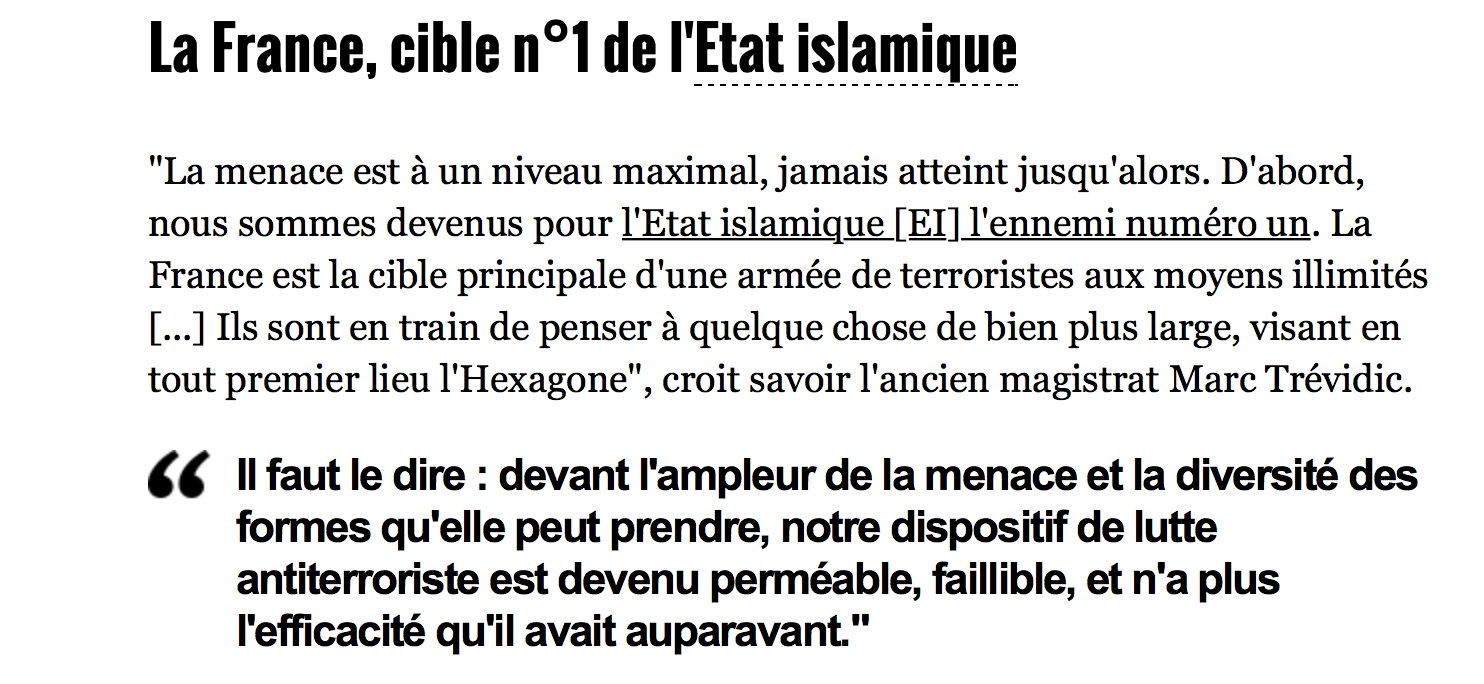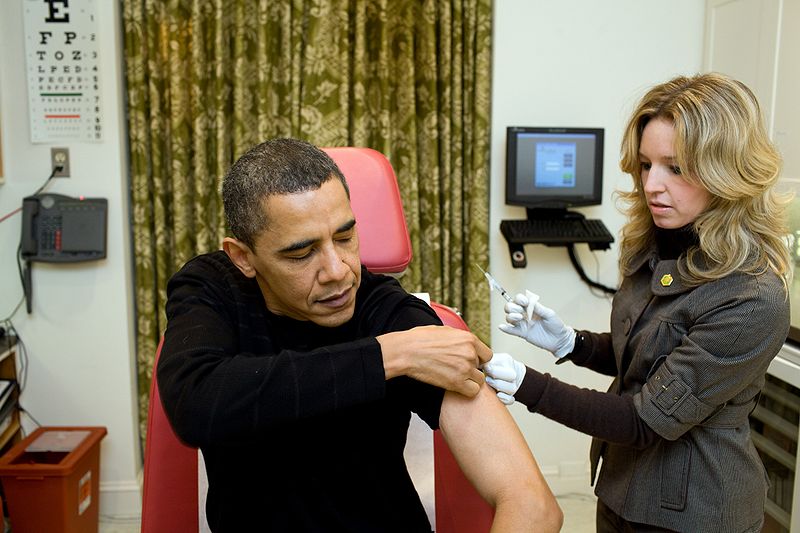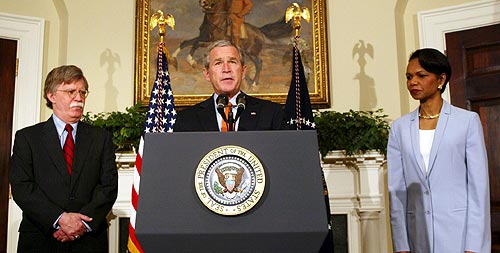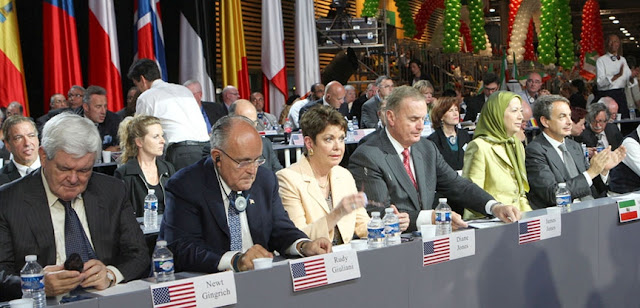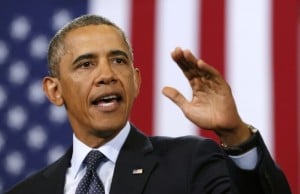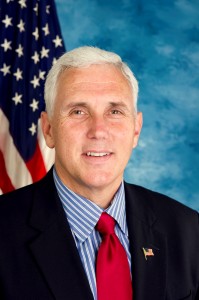Foto extraída de nota de prensa de DW
Después del mensaje de felicitación del Primer Ministro de Canadá, en el hemisferio americano, Colombia fue el primer Estado en circular formalmente un comunicado oficial de felicitaciones al Presidente electo de Estados Unidos. Su Presidente Santos fue el primero, a muy tempranas horas de la madrugada en Bogotá, en enviarle un mensaje en twitter al nuevo Presidente electo (ver notade prensa).
Desde la perspectiva internacional, no existe ninguna obligación de expresarse sobre los resultados de un ejercicio electoral por parte de los Estados. Se trata de un asunto interno a un Estado que, en apariencia, no tiene mayor relevancia. No obstante, algunos asuntos internos dan pié para algún tipo de reacciones: los eventos suscitados en Brasil (que culminaron el pasado 12 de mayo con la suspensión de la Presidenta Dilma Rousseff y con el anuncio de las primeras medidas por parte del nuevo gabinete brasileño) dieron lugar a un interesante ejercicio que tuvimos la oportunidad de analizar (ver nota publicada en el sitio de Global Research).
En materia electoral propiamente dicho, los aparatos diplomáticos han desarrollado una práctica sostenida en la materia, que permite comparar las diversas formas de manifestarse oficialmente sobre una determinada elección. Las felicitaciones enviadas por parte de un Estado a un candidato electo (que aún no ha asumido oficialmente sus funciones como Jefe de Estado) pueden externar la intención de mejorar sustancialmente las relaciones bilaterales o enviar una señal de agrado por el resultado político de las elecciones. Este gesto puede delegarse a un alto funcionario como a un vicepresidente, a un ministro de relaciones exteriores o a un vocero o a un portavoz oficial si se considera innecesario que lo haga el mismo Jefe de Estado. La ausencia de manifestación también puede enviar algún tipo de señal. En algunos casos, puede manifestar cierta negligencia, o bien algún tipo de desinterés en relación al futuro de las relaciones bilaterales entre ambos Estados. Puede también dejar entrever alguna cautela, e incluso algún tipo de reserva con relación al giro político que significa el resultado electoral obtenido en las urnas. El hecho que Panamáenviara su mensaje formal de felicitaciones al nuevo Presidente electo en Costa Rica en abril del 2014 con varios días de atraso con relación a todos los demás Estados que hicieron llegar sus felicitaciones después del 6 de abril, constituye un interesante caso en la región.
El silencio ante resultados electorales puede también expresar una muy seria reserva ante un ejercicio electoral sumamente dudoso, tal como ocurrió en el caso de Perú con ocasión de las elecciones para el tercer mandato intentado por Alberto Fujimori en el año 2000: al acto de investidura del 28 de julio del 2000 sólo participaron dos delegaciones (Nota 1).
Este tipo de expresiones forman parte de lo que se denomina en la práctica diplomática la “cortesía internacional“. Un Estado acepta ser cortés con otro manifestándolo o no manifestándose: el silencio es a veces (como en las relaciones entre personas) una forma muy cortés de expresar algún mensaje entre los Estados. Hace unos años, el jefe de la diplomacia de Costa Rica innovó en la materia, al indicar en declaraciones públicas que “no opinaría” y que “no estamos obligados a emitir ningún comentario sobre asuntos internos de los nicaragüenses” (sic.) con relación al resultado de las elecciones en Nicaragua a finales del 2011 (ver nota de prensa).
En el caso de las elecciones en Estados Unidos del 2000, algunos Estados un tanto urgidos en saludar al nuevo Presidente electo norteamericano enviaron felicitaciones a Georges W. Bush que debieron ser luego objeto de delicadas retractaciones ante la duda sobre el resultado final de las elecciones, y la decisión de proceder a un recuento de votos en Florida (Nota 2). En esta nota de prensa se lee que: “World leaders who rushed to congratulate George W. Bush for his apparent victory in the U.S. presidential election were forced on Wednesday to issue swift retractions or retreat into diplomatic silence“.
Las modalidades para externar felicitaciones a un Presidente electo son muy variadas, y en las siguiente líneas se intentará reseñar las felicitaciones recibidas por el Presidente electo Donald Trump por parte de Estados de América Latina únicamente.
MODALIDADES MODERNAS
Algunos jefes de Estado, como el de México, han optado por una vía menos formal enviando desde su cuenta en twitter el siguiente mensaje. “Felicito a EUA por su proceso electoral y le reitero a @realDonaldTrump la disposición de trabajar juntos en favor de la relación bilateral” (ver nota de prensa). De una manera muy similar el presidente de Bolivia recurrió a su cuenta en twitter (ver nota de prensa), así como el Presidente de Argentina (ver nota de prensa). Por su parte, la canciller de Argentina optó por enviar un mensaje desde su cuenta en twitter, en el que hace ver que hubiera deseado que fuese una mujer la ganadora de los comicios celebrados en Estados Unidos (ver nota de prensa). Ninguno de estos tres Estados ha considerado necesario enviar algún comunicado oficial adicional. En cambio, el tempranero mensaje del Presidente de Colombia de las cuatro de la madrugada fue respaldado por un comunicado más formal, circulado por la diplomacia colombiana horas después.
MODALIDADES USUALES
Mucho más tradicional en materia diplomática, en la que la forma tiene más relevancia que en otros ámbitos, la técnica de la declaración oficial o comunicado de prensa permite mayor precisión y darle mayor alcance y realce a ciertos aspectos, recurriendo al arte del verbo (como en todo texto oficial de un Estado hecho público). Los equipos a cargo de redactar este tipo de textos son particularmente cuidadosos con el uso de adjetivos, puntuación, formulación de cada frase, sintaxis y otros detalles, al tratarse de un texto que da a conocer la posición oficial de un Estado. Esta regla, como toda regla, conoce de excepciones: puede ocurrir que lo que se lea sea un texto mal redactado y con serios errores, como uno recientemente elaborado por las autoridades diplomáticas de Costa Rica, titulado “Declaración Oficial sobre decisión de no escuchar mensaje de Michel Temer en Naciones Unidas” (Nota 3).
Algunos Estados de América Latina han manifestado sus felicitaciones al Presidente electo norteamericano mediante comunicados oficiales, cuyo contenido es variable y denota alguna intención o reserva del mismo Estado, o bien algún tipo de preocupación.
En un comunicado emitido por el Ministerio de Relaciones Exteriores de Colombia con fecha del 9 de noviembre, se lee que:
“El Ministerio de Relaciones Exteriores, en nombre del Gobierno de Colombia, felicita al pueblo y al Gobierno de Estados Unidos de América por el espíritu democrático demostrado en la exitosa jornada electoral en la cual se eligió al nuevo Presidente de los Estados Unidos.
El Gobierno de Colombia felicita al candidato Republicano Donald Trump por su victoria en las elecciones y le desea éxito en las funciones que asumirá como nuevo Presidente de los Estados Unidos de América. Así mismo, expresa su voluntad de continuar fortaleciendo los lazos de amistad y de cooperación que han tenido los dos países.
La relación estratégica entre Colombia y Estados Unidos cuenta con el respaldo bipartidista y se ha caracterizado por una exitosa cooperación, un profundo diálogo político, así como una agenda diversificada de impacto positivo para ambos países”.
En declaraciones a la prensa, el Presidente Santos de Colombia había hecho saber que el candidato Trump no era de su preferencia (ver nota de El Tiempo y nota de HispanTV).
De igual forma, la cancillería de Panamá ha circulado el siguiente comunicado de prensa:
“Miércoles, 9 de Noviembre de 2016
El Gobierno y Pueblo de la República de Panamá felicita al Pueblo de los Estados Unidos de América por su vocación democrática, demostrada una vez más en la celebración de las elecciones presidenciales, y saluda al Presidente electo Donald Trump y al Partido Republicano por la victoria.
A la vez, reitera la disposición por continuar fortaleciendo las históricas relaciones de amistad y cooperación, que como socios estratégicos han desarrollado la República de Panamá y los Estados Unidos de América, especialmente en temas de interés mutuo como el fortalecimiento de nuestras relaciones económicas, la seguridad y la paz”.
Por parte de Guatemala, su comunicado oficial incluye una referencia a la preocupación que tiene por la situación de los migrantes radicados en Estados Unidos:
“El Gobierno de la República de Guatemala, a través del Ministerio de Relaciones Exteriores, felicita al Pueblo y Gobierno de los Estados Unidos de América por la celebración de las elecciones presidenciales realizadas el día de ayer y por demostrar una vez más su compromiso con los valores democráticos.
Asimismo, Guatemala felicita al Presidente electo, señor Donald J.Trump, por su victoria en los comicios presidenciales y le desea una exitosa gestión.
Guatemala hace votos porque las acciones que realice su administración, permitan reconocer el valioso aporte que hacen los Migrantes en los Estados Unidos y que sus políticas favorecerán y velarán por el respeto, bienestar y protección de la población migrante radicada en ese país.
El Gobierno de Guatemala manifiesta su deseo de trabajar de manera estrecha con su administración, en todas aquellas prioridades comunes de ambos países y de la región, así como reitera al Gobierno de los Estados Unidos el compromiso por continuar fortaleciendo la relación bilateral, que coadyuve al fortalecimiento e incremento del intercambio comercial, las inversiones y la cooperación para el desarrollo”.
Posterior a Colombia, a Panamá y a Guatemala, Costa Rica circuló el siguiente comunicado:
“Costa Rica saluda al pueblo y Gobierno de los Estados Unidos de América por elección de Presidente Donald TrumpPUBLICADO EL 09/11/2016 09:26 AM
El Gobierno de la República de Costa Rica expresa su saludo al Honorable Pueblo y al Ilustrado Gobierno de los Estados Unidos de América por las elecciones presidenciales celebradas este 8 de noviembre de 2016, que han dado como resultado la elección del señor Donald Trump como Presidente.
Costa Rica expresa su reconocimiento al pueblo de los Estados Unidos de América que ha dado muestras de su probada vocación democrática y a las instituciones electorales por crear y garantizar las condiciones que permitieron llevar a cabo estos comicios.
“El pueblo de los Estados Unidos ha electo al señor Donald Trump como su Presidente. Felicito al señor Donald Trump y le deseo éxitos en su gestión”, aseguró el Presidente de la República, Luis Guillermo Solís Rivera. El Ministerio de Relaciones Exteriores y Culto felicita al Presidente Electo Donald Trump por su elección y expresa su convencimiento de que los Estados Unidos de América y Costa Rica –que establecieron relaciones en 1851- continuarán profundizando sus tradicionales relaciones de amistad y cooperación, así como una agenda común de valores y propósitos compartidos en el plano bilateral, regional y mundial”.
En declaraciones a la prensa, el Presidente de Costa Rica había externado su preocupación con relación al candidato hoy Presidente electo (ver nota de Prensa Libre). Como detalle específico en la región, notemos que las elecciones realizadas en Nicaragua el pasado 6 de noviembre no han dado lugar a ningún comunicado oficial por parte de Costa Rica.
En el caso de Ecuador, el comunicado oficial de su Ministerio de Relaciones Exteriores es extremadamente corto: “El Gobierno del Ecuador felicita al pueblo estadounidense por la realización de las elecciones presidenciales, legislativas y de gobernadores, del 8 de noviembre de 2016.
El Gobierno del Ecuador espera mantener relaciones basadas en el respeto mutuo con la administración del presidente electo, Donald Trump”.
En el caso de El Salvador, su diplomacia indicó, al igual que la de Guatemala, su preocupación por los migrantes salvadoreños, llamando incluso “a la calma” a esta numerosa comunidad en Estados Unidos:
“El Gobierno de El Salvador felicita al pueblo estadounidense por proceso electoral
El Gobierno de El Salvador, a través del Ministerio de Relaciones Exteriores, felicita al pueblo estadounidense por su participación en la jornada democrática que se desarrolló durante el día de ayer en esa nación.
Asimismo, saluda al nuevo Presidente electo de los Estados Unidos de América, Donald Trump, por haber alcanzado el triunfo en dicho proceso electoral.
El Gobierno salvadoreño hace votos por el fortalecimiento de las relaciones entre ambas naciones.
Al mismo tiempo, aprovecha la ocasión para hacer un llamado a la calma a nuestra comunidad en Estados Unidos y a sus familias en El Salvador y reitera a todos los compatriotas su compromiso firme para trabajar junto a ellos en garantizar que sean respetados sus derechos”.
A diferencia de Costa Rica, el Salvador emitió un comunicado con relación a las elecciones en Nicaragua, que se lee como sigue y puede ser comparado al texto anterior:
“Lunes, 07 Noviembre 2016 08:28 Gobierno de El Salvador felicita a pueblo nicaragüense por proceso electoral
El Gobierno de El Salvador, a través del Ministerio de Relaciones Exteriores, saluda al pueblo nicaragüense por su participación en la jornada electoral que se llevó a cabo el domingo pasado, que según datos oficiales alcanzó el 65 por ciento.
Asimismo, expresa su felicitación al Presidente Daniel Ortega, quien, de acuerdo a los mismos reportes oficiales, encabeza los resultados con un 71 por ciento de los votos emitidos.
El gobierno conducido por el Presidente Ortega ha alcanzado hasta la fecha significativos avances y logros tanto sociales como económicos, en su búsqueda por el desarrollo y bienestar a favor de su pueblo. Como país miembro del Sistema de la Integración Centroamericana (SICA), El Salvador manifiesta su compromiso de seguir impulsando el fortalecimiento de la unidad regional y continuar trabajando en iniciativas conjuntas con Nicaragua y los demás Estados en beneficio de su pueblo”.
Notemos que México también externó sus felicitaciones a Nicaragua, en los siguientes términos, mediante comunicado de su Secretaría de Relaciones Exteriores:” Comunicado No. 505.- México extiende asimismo su felicitación al Presidente Ortega por su triunfo y reitera su interés en seguir estrechando los lazos de amistad y cooperación que históricamente han caracterizado la relación entre ambos países.
El Gobierno de México felicita al pueblo nicaragüense por la realización, el domingo 6 de noviembre, de una jornada electoral pacífica y ordenada en la que fue reelecto como Presidente de la República Daniel Ortega.
México extiende asimismo su felicitación al Presidente Ortega por su triunfo y reitera su interés en seguir estrechando los lazos de amistad y cooperación que históricamente han caracterizado la relación entre ambos países.
México y Nicaragua establecieron relaciones diplomáticas en 1839 y mantienen una relación dinámica y constructiva. El país es el tercer socio comercial de México en Centroamérica”
Volviendo a las elecciones en Estados Undios, se lee en medios de prensa que Cuba envío el siguiente comunicado (ver nota de prensa de Jornada): “El presidente de los Consejos de Estado y de Ministros de la República de Cuba, Raúl Castro Ruz, envió un mensaje de felicitación al Sr. Donald J. Trump por su elección como Presidente de los Estados Unidos de América“. No se ha logrado acceder a la página oficial del sitio del MINREX de Cuba para revisar si el comunicado se limita o no a esta simple frase, y se agradecería a nuestros lectores remitirnos el texto completo de ser factible (al correo electrónico siguiente: [email protected])
Por su parte, Brasil, desde el Itamaraty, ha circulado la siguiente carta enviada por su Presidente al Presidente electo en Estados Unidos Donald Trump. Al no ser un Presidente electo una autoridad, la diplomacia brasileña se ha cuidado de no remitir una carta usando las formalidades reservadas únicamente a un Jefe de Estado en ejercicio. Se limita a reproducir una carta enviada al Presidente electo.
“Nota 443
Carta al Presidente electo norteamericano
09 de noviembre del 2016 – 11:56
Su Excelencia Señor Donald J. Trump Presidente electo de los Estados Unidos de América
Señor Presidente electo,
Le felicito por su elección como Presidente de los Estados Unidos.
Brasil y Estados Unidos son dos grandes democracias que comparten valores y mantienen, históricamente, fuertes relaciones en los más distintos ámbitos. Estoy seguro de que vamos a trabajar juntos para estrechar aún más los lazos de amistad y cooperación que unen a nuestros pueblos.
Le deseo pleno éxito en el Gobierno de los Estados Unidos.
Michel Temer Presidente de la República Federativa de Brasil”.
La misma técnica consistiendo en remitir, desde un Ministerio de Relaciones Exteriores, a una carta personal del Presidente al Presidente electo Donald Trump fue usada por Perú (ver texto de la carta). Su cancillería se limitó a emitir el siguiente texto: “N° 557 – 09/11/2016 Nota Informativa 557 – 16 En la fecha, el Presidente de la República, Pedro Pablo Kuczynski, envió una Carta de felicitación al Presidente electo de los Estados Unidos de América, Donald J. Trump, quien será el inquilino número 45 de la Casa Blanca. Acceda a la misiva en: http://bit.ly/2eUJaih Lima, 9 de noviembre de 2016″
Paraguay emitió mediante el Ministerio de Relaciones Exteriores un texto en el que se puede leer que:
“Comunicado del Gobierno Nacional sobre la Elección Presidencial en los Estados Unidos de América
El Gobierno de la República del Paraguay ha seguido con particular interés el proceso electoral de los Estados Unidos de América, que culminó con la jornada cívica y democrática celebrada el 8 de noviembre pasado, en que resultó electo el candidato del Partido Republicano, Señor Donald Trump.
El Gobierno paraguayo, presidido por el Presidente Horacio Cartes, felicita al Presidente electo, Señor Donald Trump, y a la vez expresa sus mejores deseos de éxito en el ejercicio de la Presidencia de esa Nación hermana.
El Gobierno de la República del Paraguay aspira a mantener y consolidar aún más el excelente nivel de las históricas relaciones de amistad y cooperación existentes, en el ámbito bilateral como multilateral, basadas en principios y valores comunes y compartidos como la democracia, el respeto y la promoción de los derechos humanos, la libertad, la solidaridad y la cooperación internacional”.
Uruguay también, mediante sur Ministerio de Relaciones Exteriores emitió el siguiente texto: “COMUNICADO DE PRENSA Nº 114/16
El Gobierno de la República Oriental del Uruguay saluda a los Estados Unidos de América y a su Presidente electo, señor Donald Trump, por su victoria en las elecciones nacionales que tuvieron lugar el pasado 8 de noviembre.
Uruguay ha seguido con particular interés el proceso electoral, y felicita al pueblo estadounidense por su compromiso y apego a los principios y valores democráticos, los cuales son compartidos por ambos Estados.
El Gobierno de la República Oriental del Uruguay aprovecha esta oportunidad para expresar su intención de continuar consolidando la relación de amistad con los Estados Unidos de América tanto en el ámbito bilateral como multilateral, lazos que históricamente han sido de gran beneficio para las dos Naciones”.
Finalmente, Venezuela circuló el siguiente comunicado de prensadesde su cancillería: “Venezuela saluda a EE.UU por realización de elecciones y felicita al Presidente electo Donald Trump
La República Bolivariana de Venezuela saluda a los Estados Unidos de Norteamérica por la realización de sus elecciones presidenciales el día 8 de noviembre de 2016.
El Gobierno bolivariano de Venezuela felicita al Presidente electo Donald Trump, y hace votos para que se pueda avanzar en un futuro donde impere el respeto a los principios y propósitos de la Carta de las Naciones Unidas, que consagra la igualdad soberana de los Estados y la autodeterminación de los pueblos, entre otros, mediante relaciones políticas y diplomáticas bilaterales respetuosas.
La República Bolivariana de Venezuela anhela que en esta nueva etapa, que comienza para esta nación norteamericana, se puedan establecer nuevos paradigmas con nuestra Región basados en el reconocimiento a las identidades culturales, sociales e históricas de nuestros países, y en el respeto a la no intervención en los asuntos internos, al derecho al desarrollo y a la paz.
De igual forma, esperamos que los Estados Unidos de Norteamérica sepa afrontar los grandes desafíos económicos, sociales y políticos que tiene la humanidad, y en los cuales su actuación es importante para la paz y la estabilidad mundial”
Al momento de redactar esta breve nota, no se registran otros comunicados oficiales de Estados de América Latina, posiblemente más distantes, reservados y cautos sobre el resultado de esta elección, en la que el tema de los migrantes y de la comunidad hispana en Estados Unidos fue objeto de inusuales y provocativas valoraciones por parte del candidato Donald Trump. No obstante, no se descarta que otros Estados de la región envien comunicados de felicitaciones en los próximos días.
LIBRE COMERCIO EN EL HEMISFERIO AMERICANO
En su campaña, Donald Trump cuestionó los tratados de libre comercio a los que es parte Estados Unidos. El Primer Ministro de Canadá ha declarado estar dispuesto a renegociar el NAFTA que une a Canadá y México con Estados Unidos (ver nota de prensa). En Costa Rica, al estar presidiendo los destinos del país un opositor al Tratado de Libre Commercio (TLC) con Estados Unidos (más conociddo como CAFTA-DR), adoptado mediante referendum el 7 de octubre del 2007 por un estrecho márgen de 48.844 votos (de un total de 2.654.627 votantes), el tema está cobrando particular interés.
Varios sectores han avanzado la idea de una posible renegociación de dicho instrumento comercial a penas se instale el nuevo ocupante en la Casa Blanca designado en Estados Unidos. Notemos que el actual Embajador de Costa Rica en Estados Unidos, Román Macaya, también propuso en su momento revisar este acuerdo comercial. En la Asamblea Legislativa, el diputado Otton Solis, fundador del Partido Acción Ciudadana (PAC) actualmente en el gobierno, es partidario de renegociar el TLC desde varios años y ha declarado en este día que el momento parece haber llegado para hacerlo (ver nota de La Nación). En el 2010, cuando fue candidato a la presidencia, había indicado que esta renegociación sería una de sus primeras acciones en caso de ser electo Presidente (ver nota de prensa). Como bien se sabe, los tratados comerciales no son normas pétreas y, si así lo disponen las partes, pueden ser modificados o revisados. En caso de que un Estado parte no este satisfecho con las disposiciones de un tratado y no obtenga de las otras partes su acuerdo para enmendarlo, puede también optar por denunciarlo, recurriendo a una figura (la denuncia) plenamente admitida por el derecho de los tratados consagrado en la Convención de Viena de 1969: remitimos a ese respecto a un estudio sobre la eventual denuncia de República Dominicana al CAFTA-DR, editada por la misma USAID (y que podría ser útilmente completado por uno de un jurista dominicano del sector propiamente académico, quién posiblemente llegaría a otro tipo de conclusiones).
Notemos que desde marzo del 2011, varios cables confidenciales de Wikileaks hechos públicos en Costa Rica, documentan de manera incuestionable la red de información que, desde la Embajada de Estados Unidos en Costa Rica y desde COMEX (Ministerio de Comercio Exterior), logró garantizar la adopción de este tratado comercial en el 2007, en medio de fuertes tensiones y movilizaciones sociales (ver nota de prensa sobre información filtrada desde la misma Sala Constitucional y otra nota sobre estrategias tendientes a deslegitimar a los opositores al TLC). Pese a ser documentos públicos desde marzo del 2011 en Costa Rica, no se ha oído de sanciones o de la apertura de procedimientos administrativos contra funcionarios de la administración 2006-2010. En este artículo del analista Jorge Vargas Cullel, se lee que, además de la red de información privilegiada antes mencionada, los sectores favorables al TLC contaron con otra decisiva herramienta: “El SÍ contó con una evidente ventaja en materia de financiamiento político, lo que le permitió un gasto en publicidad en los medios de comunicación ocho veces superior en relación al gasto del NO: US$ 1,75 millones a US$ 0,21 millones”
Cabe precisar que el tema de la renegociación del CAFTA-DR dio lugar, en octubre del 2016, a una carta de República Dominicanacirculada a los demás Estados partes al CAFTA-DR solicitándoles renegociar este instrumento comercial (ver nota de La Extra). No se tiene información a la fecha de redactar esta nota sobre la respuesta dada por las autoridades de Costa Rica a esta solicitud dominicana del pasado mes de octubre, y agradecemos desde ya que nuestros lectores nos proporcionen información al respecto. La renegociación de tratados de libre comercio (TLC) o tratados bilaterales de inversiones (TBI) es un tema sobre el que COMEX se ha mostrado muy dicreto en los últimos años. Un reciente análisis (ver nota del Semanario Universidad) sobre la cantidad de dinero que Costa Rica deberá sufragar en el 2017 para enfrentar las demandas y arbitrajes internacionales que arrastra debido a las cláusulas contenidas en estos instrumentos puede explicar – al menos en parte – esta cautela extrema de las autoridades de COMEX.
RESERVA Y CAUTELA EUROPEA ANTE RESULTADOS EN ESTADOS UNIDOS
En Europa, las reacciones han sido muy variadas, desde el entusiasmo de la actual Primer Ministra en Reino Unido y el de su homólogo en Hungría a la extrema reserva de las máximas autoridades en Alemania, las cuales esperan rectificaciones y aclaraciones sobre lo oído durante la campaña electoral por parte de Donald Trump (ver nota del Huffingthon Post). El Presidente de Francia ha indicado ver que la elección de Donald Trump abre un período de “incertidumbre” (ver nota de Le Monde), mientras que la diplomacia alemana ha convocado a una reunión extraordinaria de los 28 Ministros de Relaciones Exteriores de la Unión Europea (UE) para analizar las consecuencias del resultado de las elecciones en Estados Unidos (ver nota de DW). Durante la campaña electoral, Donald Trump había manifestado su oposición frontal al Tratado de Libre Comercio entre la UE y Estados Unidos. Cabe recordar que Donald Trump se encontraba en el Reino Unido durante la votación sobre el “Brexit y que felicitó a los que votaron a favor de la salida del Reino Unido de la UE (ver nota de la BBC del 24 d ejunio del 2016). Se lee en un comunicado del Foreign Office justificando la ausencia del actual jefe de la diplomacia británica a la reunión extraordinaria convocada por Alemania que: “The Foreign Secretary will not attend the meeting convened for Sunday. There is a regular Foreign Affairs Council meeting on Monday where a range of issues can be discussed in the normal way. “We do not see the need for an additional meeting on Sunday because the US election timetable is long established. An act of democracy has taken place, there is a transition period and we will work with the current and future administrations to ensure the best outcomes for Britain” (ver nota de prensa)
En aras de completar la reacción en Europa, es de notar que la Unión Europea como tal envió una carta de felicitaciones suscrita por los Presidentes del Consejo Europeo y de la Comisión de la UE (ver texto completo), la cual concluye indicando que: “We should consolidate the bridges we have been building across the Atlantic. Europeans trust that America, whose democratic ideals have always been a beacon of hope around the globe, will continue to invest in its partnerships with friends and allies, to help make our citizens and the people of the world more secure and more prosperous. We would take this opportunity to invite you to visit Europe for an EU – US Summit at your earliest convenience. This conversation would allow for us to chart the course of our relations for the next four years“.
A MODO DE CONCLUSIÓN
Como indicado, no existe ninguna obligación que derive específicamente del derecho internacional público de manifestarse después de cada ejercicio electoral por parte de los Estados. Son criterios de oportunidad política los que usualmente priman en este tipo de decisiones. La embarazosa situación acaecida en relación a las felicitaciones “prematuras” enviadas por algunos Estados urgidos de manifestarse al Presidente electo Georges W. Bush en el 2000 denota además una carrera contra el tiempo de algunos para figurar entre los primeros en enviar sus mensajes. Leemos que en el caso alemán sus autoridades declararon públicamente: “What can we do?” /…/ “It is complicated. One wants to be among the first sending congratulations and warm wishes” (ver declaraciones del representante alemán reproducidas en nota de prensa).
Independientemente del esmero de algunos Estados por ser los primeros en enviar sus mensajes, cuando el resultado es inesperado, las reacciones difieren sensiblemente. La sorpresa causada por la designación de Donald Trump como nuevo Presidente de Estados Unidos puede explicar en parte la cautela de algunos Estados, la reserva de muchos otros, en particular en América Latina. Al no haber sido mayormente abordado el tema de las relaciones entre América Latina y Estados Unidos durante esta última campaña electoral norteamericana (como muchos otros temas), la incógnita sobre el rumbo que desea emprender Donald Trump en la relación con América Latina se irá aclarando con sus primeros gestos y declaraciones como Presidente en ejercicio.
Nicolas Boeglin
Nota 1: Se lee al respecto que “L´élection de M. Fujimori au Pérou, pour un troisième mandat, a soulevé de très nombreuses critiques de la part de la communauté internationale et très peu d´Etats se sont rendus a la cérémonie d´investiture (la Bolivie et l´Equateur)”. Véase TOURARD H., La qualité de Chef d´Etat, in SFDI (Société Française pour le Droit International), Le Chef d´Etat et le droit international, Colloque de Clermont-Ferrand, Paris, Pedone, 2002, pp.117-137, p.120.
Nota 2: Un ejercicio totalmente inédito tuvo lugar en el año 2000 con muchos de los telegramas de felicitaciones de varios Estados al Presidente electo de los Estados Unidos Georges W. Bush que debieron ser objeto de incómodas “retractaciones” ante la repentina duda sobre el resultado final de las urnas (en particular un grupo de Estados de Asia autores de “felicitaciones prematuras”). En el caso del Reino de los Países Bajos se lee que su diplomacia externó en aquellla oportunidad la necesidad de retractarse en los siguientes términos: “Given the fact that at this moment uncertainty exists about the outcome of the American presidential elections, the earlier statement … has been retracted” (ver nota de prensa de The Guardian).
Nota 3: Remitimos a nuestros lectores al comunicado de prensa emitido por el Ministerio de Relaciones Exteriores de Costa Rica para intentar explicar la actuación de su Presidente en Naciones Unidas, el pasado 20 de setiembre del 2016 a las 10 de la mañana. El texto de dicho comunicado titulado “Declaración Oficial” (sin que se tenga claridad sobre las razones para distinguirlo de un comunicado de prensa) es reproducido al final de esta nota. Pese a comparecer el titular de esta cartera ministerial ante la Asamblea Legislativa para intentar explicar semejante actuación presidencial (al parecer inédita en los anales de Naciones Unidas desde 1945, al nunca haber integrado un Jefe de Estado una comitiva retirándose de la sala de audiencias), no se ha logrado conocer con precisión la identidad exacta del (los) autor(es) de este texto.
![]() Haiti: How Bill and Hillary Clinton Wrecked an Entire Country
Haiti: How Bill and Hillary Clinton Wrecked an Entire Country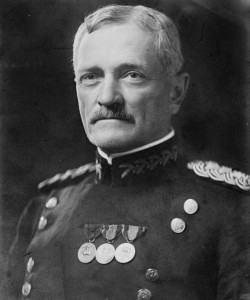

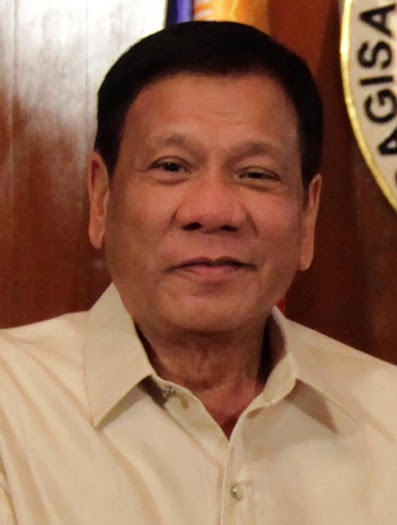
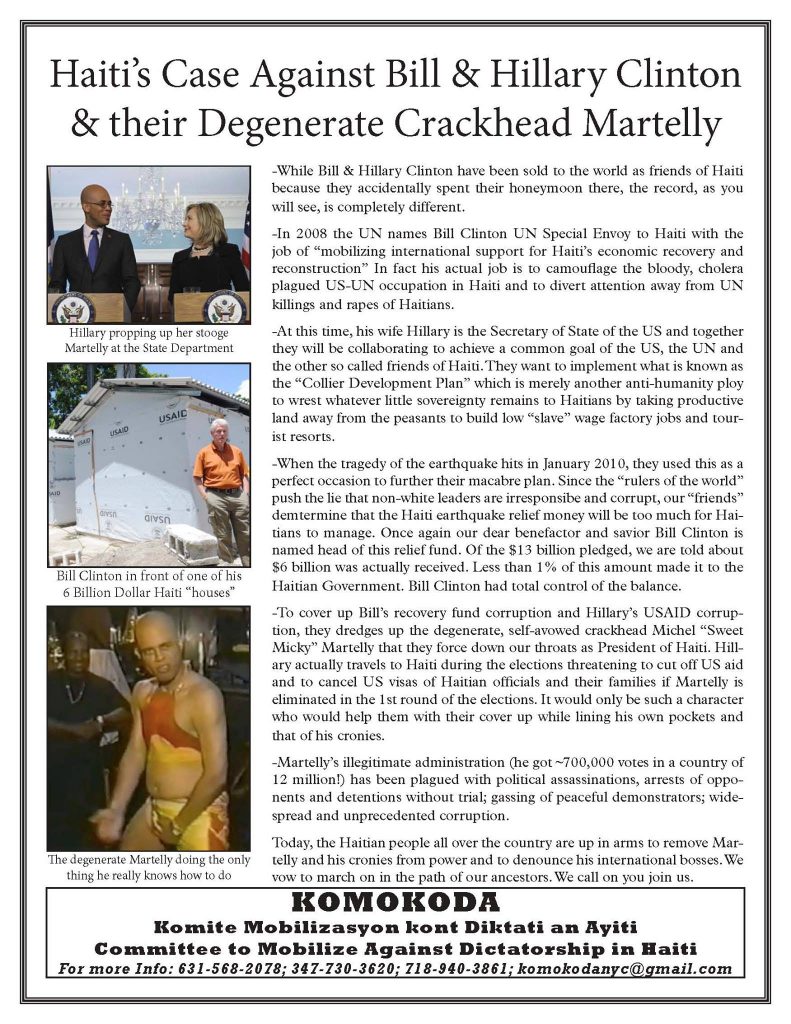
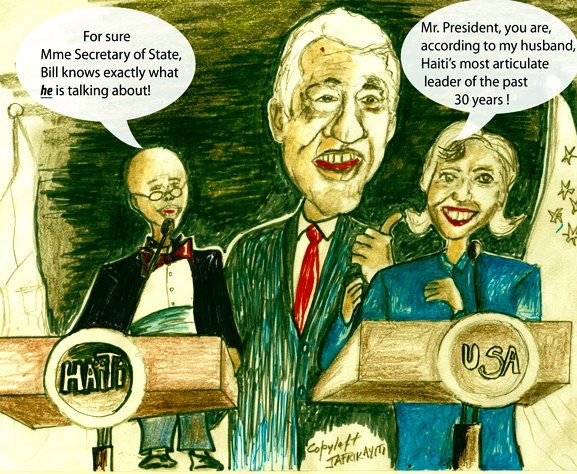
 Getting solid data on glyphosate’s presence in the American food supply is more important than ever as the EPA finalizes a risk assessment for glyphosate and tries to determine
Getting solid data on glyphosate’s presence in the American food supply is more important than ever as the EPA finalizes a risk assessment for glyphosate and tries to determine











